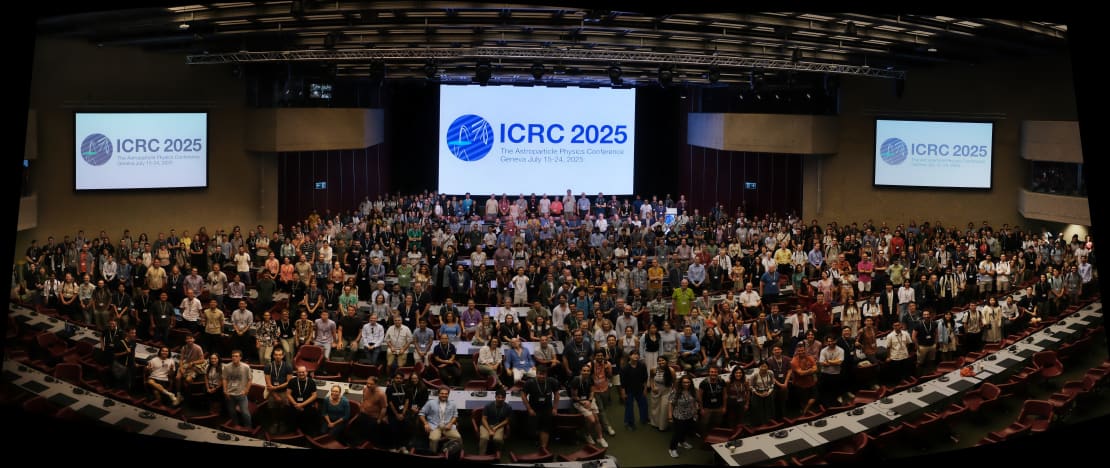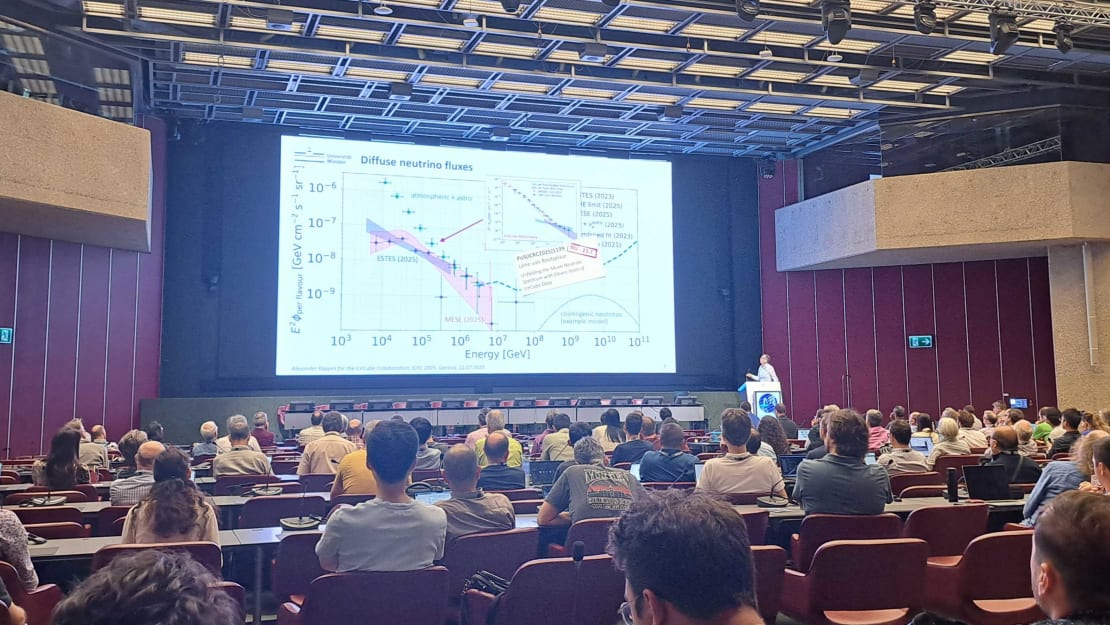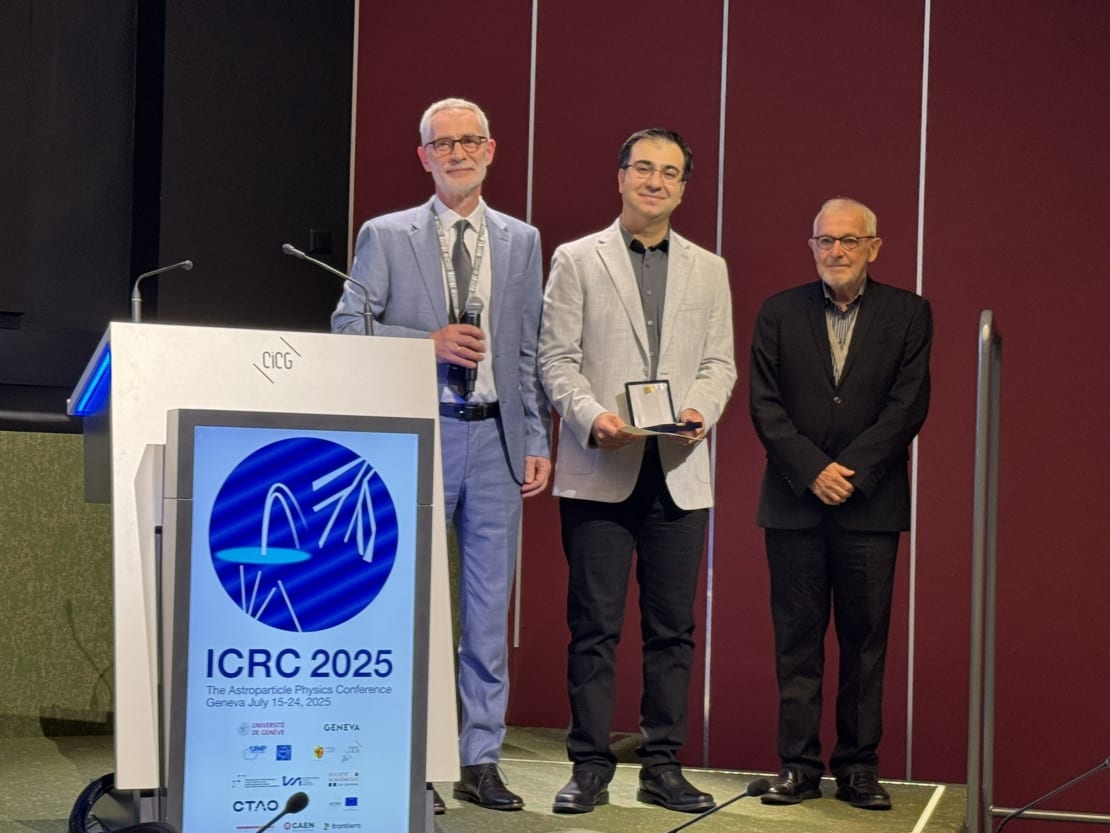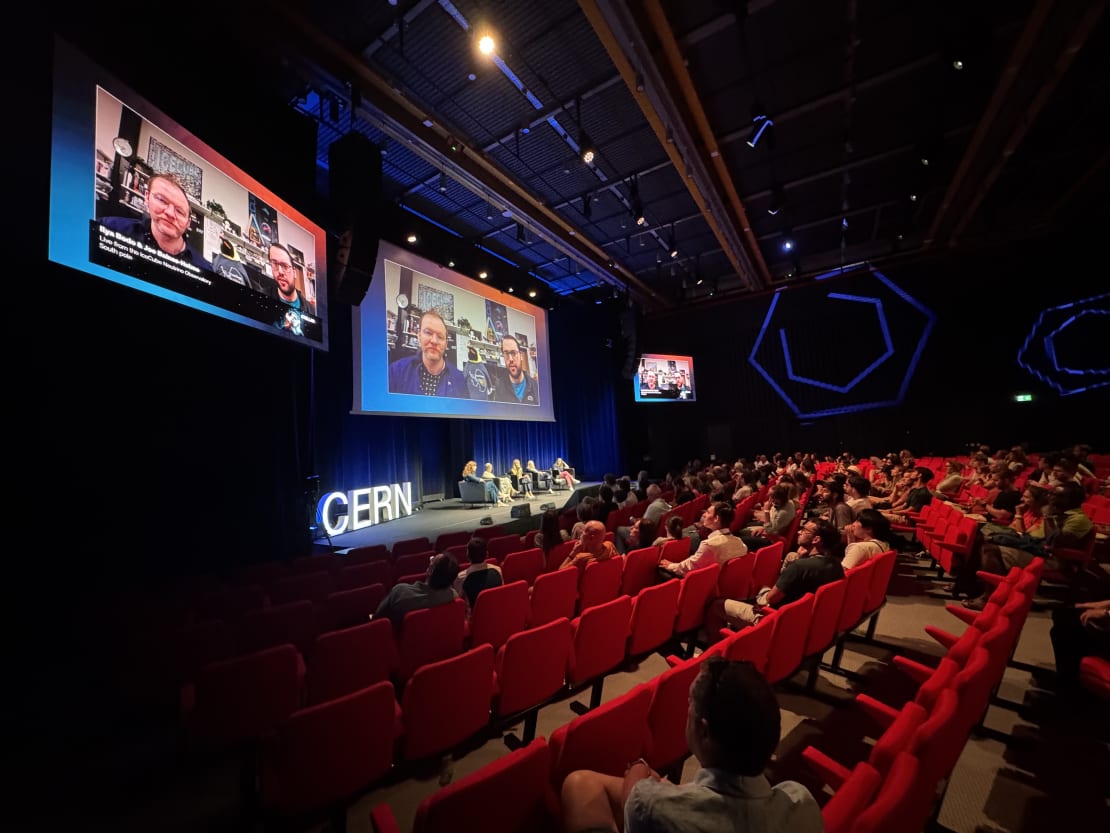
The 39th International Cosmic Ray Conference (ICRC), the largest conference in the world for cosmic ray physics, was held on July 14-July 24 at the Geneva International Conference Center in Geneva, Switzerland.
The main topics covered included cosmic-ray physics, gamma-ray astronomy, neutrino astronomy and neutrino physics, dark matter physics, solar and heliospheric physics, multimessenger astronomy, and gravitational wave astronomy.

The IceCube Collaboration was well represented at ICRC 2025; collaborators submitted a total of 81 contributions (41 talks and 40 posters), including a highlight talk: “Highlights from the IceCube Neutrino Observatory” by Universität Münster professor Alexander Kappes. Out of the 81 contributions, 8 were on IceCube-Gen2, the planned IceCube extension. A full list of contributions and links to proceedings can be found here: IceCube and IceCube-Gen2.

During the opening ceremony on July 15, the 2025 IUPAP Early Career Scientist Prize was awarded to Ali Kheirandish, an assistant professor at the University of Nevada, Las Vegas. He was recognized for “his theoretical insights in associating X-ray emitting active galaxies with sources of cosmic neutrinos and his direct contributions to the experimental confirmation.”
A special event was held at CERN on July 19 to commemorate the 56th anniversary of the first human landing on the moon. The program included inspiring talks given by Nobel Prize laureates, astronauts in training, and world-class scientists along with hands-on activities and live music for all ages.

During a session on the invisible universe, University of Geneva professor Teresa Montaruli gave a brief overview of the IceCube Neutrino Observatory and was joined by other panelists. Later, winterovers Joe Baines-Holmes and Ilya Bodo answered live questions from the South Pole.